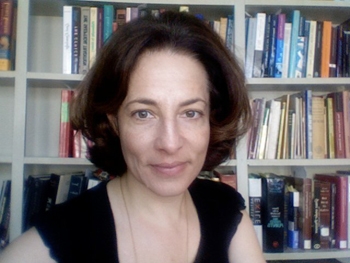EPISODE 7 - WHO IS TO BLAME? CYBERSECURITY & ATTRIBUTION
In this podcast, David Nicholson speaks with Professor Howard Lin from Stanford University. Dr. Herbert Lin is senior research scholar for cyber policy and security at the Center for International Security and Cooperation and Hank J. Holland Fellow in Cyber Policy and Security at the Hoover Institution, both at Stanford University. His research interests relate broadly to policy-related dimensions of cybersecurity and cyberspace, and he is particularly interested in and knowledgeable about the use of offensive operations in cyberspace, especially as instruments of national policy. Full bio: Dr. Herbert Lin
In this conversation, David and Dr. Lin discuss the attribution problem as it relates to cyber security, the cost of being secure in cyberspace, and the internet of things (IoT).
Lin, H. (2016). ATTRIBUTION OF MALICIOUS CYBER INCIDENTS: FROM SOUP TO NUTS. Hoover Institution, 1-56.
Canadian Intelligence Security Service. 2018 Security Outlook, Potential Risks and Threats.
Dr. Herbert Lin
EPISODE 6 - HOW CIVIL WARS END
Lise Morjé Howard
In this podcast, David Nicholson speaks with Professor Lise Morjé Howard from Georgetown University.
Professor Howard is Associate Professor in the Department of Government at Georgetown University.
Dr. Howard's research and teaching interests span the fields of international relations, comparative politics, and conflict resolution. Her work focuses on civil wars, peacekeeping, U.S. foreign policy, and area studies of sub-Saharan Africa, the Balkans, and the Middle East. She has published articles and book chapters on these topics in such journals as International Organization, International Security, International Studies Quarterly, International Peacekeeping, Foreign Affairs, and with Oxford University Press.
In this conversation, the focus is on her recent article. Howard, L., & Stark, A. (2017). How Civil Wars End: The International System, Norms, and the Role of External Actors. International Security, 42(3), 127-171.
In the talk, they discuss the conclusions of her research and discuss some of the challenges inherent in bringing civil wars to an end.
EPISODE 5 - AN OCEAN OF WASTE
Dr. Jennifer Lavers
In this podcast, David Nicholson speaks with Dr. Jennifer Lavers from the Institute for Marine and Antarctic Studies at the University of Tasmania. Dr. Lavers studies the shocking effects of anthropogenic debris on ocean ecosystems, in particular, seabird populations. Her 2017 reports on extraordinary pollution levels has served as a global wake-up call on the deteriorating state of our oceans.
Dr. Lavers and David discuss the causes of oceanic pollution, the varieties of plastic that make the problem worse, and the need for urgent action from governments, corporations, and individuals. The discussion also covers the impact of plastic pollution on the fauna of marine ecosystems.
NY Times Article - Ocean Waste
Lavers, Jennifer L., and Alexander L. Bond. “Exceptional and Rapid Accumulation of Anthropogenic Debris on One of the World’s Most Remote and Pristine Islands.” Proceedings of the National Academy of Sciences of the United States of America 114.23 (2017): 6052–6055. PMC. Web. 2 Mar. 2018.
Grace Ledbetter
EPISODE 4 - THE POWER OF PLATO'S CAVE
In this podcast, David Nicholson speaks with Professor Grace Ledbetter from Swarthmore College. Grace Ledbetter is an Associate Professor and Department Chair, Classics, and Associate Professor of Philosophy. She was a Townsend Traveling Fellow at Corpus Christi College, Oxford (1994-5). She holds a joint appointment in Classics and Philosophy and specializes in Ancient Philosophy and Greek Poetry. She regularly teaches courses at all levels on Greek and Latin languages, Plato, the history of ancient philosophy, Homer, Greek tragedy, Greek lyric poetry, Greek religion, and Greek myth in 20th Century performing arts.
In the conversation, Professor Ledbetter and David discuss Plato’s Allegory of the Cave. Topics include Plato’s place within Ancient Greek philosophy, virtue, and the meaning of education for Plato.
John Norton
EPISODE 3 - EINSTEIN FOR EVERYONE
In this podcast, David Nicholson speaks with Professor John Norton from the University of Pittsburgh’s History and Philosophy of Science department. Professor Norton studies the history and philosophy of physics (relativity, quantum theory, and statistical physics), with a special interest in general relativity, and has published extensively on the detailed steps of Einstein's discovery of general and special relativity and also on many aspects of the theory's philosophical foundations.
Among other topics related to the work of Albert Einstein, the conversation explores the situation of physics before and after Einstein's annus mirabilis of 1905.
Andrew J. Bacevich
EPISODE 2 - AMERICA'S WAR FOR THE GREATER MIDDLE EAST
In this podcast, David Nicholson speaks with Andrew J. Bacevich about America’s perpetual war in the Middle East. Andrew J. Bacevich, Sr. is an American historian specializing in international relations, security studies, American foreign policy, and American diplomatic and military history.
The podcast is based on Bacevich’s book: America's War for the Greater Middle East: A Military History.
The book was long-listed for the national book award. It offers a searing assessment of U.S. military policy in the Middle East over the past four decades. Bacevich is a retired army colonel and New Your Times best-selling author.
EPISODE 1 - Galileo's Letters with Hannah Marcus
In this podcast, David Nicholson speaks with Professor Hannah Marcus about her work on Galileo’s letters. Hannah Marcus is an Assistant Professor in the Department of the History of Science at Harvard University. Her research focuses on the scientific culture of early modern Europe between 1450 and 1700.
Marcus earned her BA at the University of Pennsylvania and her PhD at Stanford University in 2016. Before coming to Harvard she worked as a postdoctoral researcher on the Galileo Correspondence Project, which she directs with Paula Findlen.
Galileo Correspondence Project
Findlen, Paula, and Hannah Marcus. "The breakdown of Galileo’s Roman network: Crisis and community, ca. 1633." Social studies of science (2017).
Hannah Marcus







